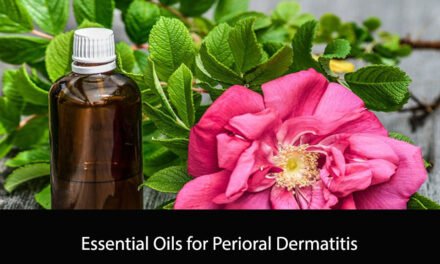Ticks are small, blood-sucking arachnids that can transmit diseases to humans and animals. They are commonly found in wooded areas, tall grasses, and bushes, and are most active during the warmer months of the year. If you spend time outdoors, it’s important to take precautions to avoid tick bites. However, if you do get bitten, there are natural remedies that can help alleviate the symptoms, such as essential oils.
Essential oils are concentrated plant extracts that have been used for medicinal purposes for thousands of years. They are known for their antibacterial, antifungal, and antiviral properties, and can be used to treat a variety of ailments, including insect bites. When it comes to tick bites, essential oils can help reduce inflammation, relieve pain and itching, and prevent infection. In this article, we will explore some of the best essential oils for tick bites and how to use them safely and effectively.
Understanding Essential Oils

Essential oils are concentrated plant extracts that have been used for medicinal purposes for centuries. They are derived from various parts of plants, including the leaves, flowers, and roots, and are known for their therapeutic properties. Essential oils are highly concentrated, meaning that a small amount can go a long way.
When it comes to tick bites, essential oils can be a natural and effective way to alleviate symptoms and prevent infections. Some essential oils have anti-inflammatory, antiseptic, and analgesic properties that can help reduce swelling, pain, and the risk of infection.
However, it’s important to note that essential oils should never be used as a substitute for medical treatment. If you experience severe symptoms or an allergic reaction, seek medical attention immediately.
Here are some popular essential oils for tick bites and their properties:
- Tea tree oil: Known for its antiseptic and anti-inflammatory properties, tea tree oil can help reduce swelling and prevent infection.
- Lavender oil: Lavender oil has analgesic and anti-inflammatory properties that can help alleviate pain and reduce swelling.
- Eucalyptus oil: Eucalyptus oil has antiseptic and anti-inflammatory properties that can help prevent infection and reduce swelling.
- Peppermint oil: Peppermint oil has analgesic and anti-inflammatory properties that can help relieve pain and reduce swelling.
Before using essential oils, it’s important to dilute them properly with a carrier oil, such as coconut or jojoba oil. This will help prevent skin irritation and ensure that the essential oils are effective.
In summary, essential oils can be a natural and effective way to alleviate symptoms and prevent infections from tick bites. However, it’s important to use them properly and in conjunction with medical treatment if necessary.
Best Essential Oils for Tick Bites
Ticks are small, blood-sucking parasites that can transmit diseases to humans and animals. Essential oils are a natural and effective way to repel ticks and soothe tick bites. We have compiled a list of the best essential oils for tick bites that can help you prevent and treat tick bites.
Tea Tree Oil
Tea tree oil is a potent essential oil that has antiseptic and anti-inflammatory properties. It can help soothe tick bites and prevent infections. You can apply tea tree oil directly to the tick bite or mix it with a carrier oil like coconut oil. Tea tree oil can also be used as a tick repellent by adding a few drops to your shampoo or body wash.
Lavender Oil
Lavender oil is a versatile essential oil that has a calming effect on the body and mind. It can help relieve itching and inflammation caused by tick bites. You can apply lavender oil directly to the tick bite or mix it with a carrier oil like almond oil. Lavender oil can also be used as a tick repellent by adding a few drops to your laundry detergent or dryer sheets.
Peppermint Oil
Peppermint oil has a refreshing scent and cooling effect that can help relieve the discomfort of tick bites. It has anti-inflammatory and analgesic properties that can reduce swelling and pain. You can apply peppermint oil directly to the tick bite or mix it with a carrier oil like olive oil. Peppermint oil can also be used as a tick repellent by adding a few drops to a spray bottle filled with water.
Eucalyptus Oil
Eucalyptus oil is a powerful essential oil that has antiseptic and insecticidal properties. It can help repel ticks and prevent infections. You can apply eucalyptus oil directly to the tick bite or mix it with a carrier oil like jojoba oil. Eucalyptus oil can also be used as a tick repellent by adding a few drops to a diffuser or vaporizer.
Lemongrass Oil
Lemongrass oil is a natural insect repellent that can repel ticks and other pests. It has a fresh and citrusy scent that can help mask the body odor that attracts ticks. You can apply lemongrass oil directly to the tick bite or mix it with a carrier oil like grapeseed oil. Lemongrass oil can also be used as a tick repellent by adding a few drops to a spray bottle filled with water.
In conclusion, essential oils can be a safe and effective way to prevent and treat tick bites. However, it is important to use them properly and seek medical attention if you experience any adverse reactions or symptoms.
How to Use Essential Oils for Tick Bites

Ticks are a common problem, especially during the warmer months. Essential oils have been found to be effective in repelling ticks and reducing the symptoms of tick bites. Here are some ways to use essential oils for tick bites:
Direct Application
One way to use essential oils for tick bites is to apply them directly to the affected area. Lavender, tea tree, and peppermint oils are some of the most effective essential oils for this purpose. Simply apply a drop or two of the oil to the bite and gently massage it into the skin.
Dilution Techniques
Essential oils are highly concentrated and should always be diluted before use. Diluting essential oils with a carrier oil such as coconut or almond oil can help reduce the risk of skin irritation. A safe dilution ratio for adults is 2-3 drops of essential oil per teaspoon of carrier oil. For children, the ratio should be even lower, at 1-2 drops per teaspoon of carrier oil.
Safety Precautions
Essential oils are generally safe when used properly, but it’s important to take some precautions to avoid any adverse reactions. Always perform a patch test before using any new essential oil. If you experience any skin irritation or allergic reaction, discontinue use immediately.
Additionally, essential oils should not be ingested. Keep them out of reach of children and pets, and avoid getting them in your eyes or mouth. If you accidentally swallow an essential oil, seek medical attention immediately.
In conclusion, essential oils can be a safe and effective way to treat tick bites. However, it’s important to use them properly and follow the recommended safety precautions. If you have any concerns or questions, consult with a healthcare professional before using essential oils.
Effectiveness of Essential Oils Against Ticks
Ticks are a common problem for outdoor enthusiasts, hikers, and pet owners alike. Essential oils are a natural and popular alternative to chemical repellents. In this section, we will examine the effectiveness of essential oils against ticks.
Scientific Evidence
Several studies have shown that essential oils can be effective in repelling ticks. One study found that a combination of clove and lemongrass oil was more effective at repelling ticks than DEET, a common chemical repellent. Another study found that geranium oil was highly effective in repelling ticks.
However, it is important to note that the effectiveness of essential oils can vary depending on the type of tick and the concentration and formulation of the oil. More research is needed to determine the optimal concentration and formulation of essential oils for tick repelling.
Limitations and Considerations
While essential oils can be effective in repelling ticks, there are some limitations and considerations to keep in mind. Essential oils are not regulated by the FDA, and the quality and purity of oils can vary widely. It is important to purchase essential oils from a reputable source and to check the label for the botanical name and country of origin.
Additionally, essential oils should never be applied directly to the skin and should always be diluted in a carrier oil. Some essential oils can cause skin irritation or allergic reactions, so it is important to do a patch test before use.
In conclusion, essential oils can be an effective and natural alternative to chemical repellents for repelling ticks. However, it is important to use caution and to do your research before using essential oils.
Alternative Tick Bite Treatments and Prevention
Ticks are a common problem, especially during outdoor activities. While chemical repellents are commonly used to prevent tick bites, some people prefer alternative treatments. Here are some alternative tick bite treatments and prevention methods:
Chemical Repellents
Chemical repellents are the most common way to prevent tick bites. They contain chemicals such as DEET, picaridin, and permethrin that repel ticks. These repellents are effective, but some people may prefer natural alternatives.
Natural Repellents
Natural repellents are a popular alternative to chemical repellents. Here are some natural repellents that may help prevent tick bites:
- Essential oils: Essential oils such as lavender, lemon eucalyptus, and peppermint can repel ticks. Dilute the essential oils with a carrier oil and apply it to your skin or clothing.
- Garlic: Eating garlic may help repel ticks. The sulfur compounds in garlic are thought to repel ticks.
- Cedar oil: Cedar oil is a natural tick repellent. Apply it to your skin or clothing to repel ticks.
Tick Bite Aftercare
If you get bitten by a tick, it’s important to remove it as soon as possible. Here are some tick bite aftercare tips:
- Use tweezers to remove the tick: Grasp the tick with the tweezers as close to the skin as possible and pull it straight out. Do not twist or jerk the tick.
- Clean the bite: Wash the bite with soap and water. Apply an antiseptic to the bite.
- Monitor the bite: Watch for signs of a tick-borne illness such as fever, rash, or flu-like symptoms. If you experience any of these symptoms, seek medical attention.
In conclusion, while chemical repellents are the most common way to prevent tick bites, there are alternative treatments available. Natural repellents and tick bite aftercare can be effective in preventing tick-borne illnesses.
Essential Oils and Pets

When it comes to using essential oils on pets, it is important to exercise caution. While essential oils can be beneficial for humans, some can be toxic to pets. Here are some things to keep in mind when using essential oils on your furry friends.
Safe Use for Animals
When using essential oils on pets, it is important to dilute the oils and use them in small amounts. Essential oils should never be applied directly to a pet’s skin, as this can cause irritation and even chemical burns. Instead, essential oils should be mixed with a carrier oil, such as coconut oil or olive oil, before being applied topically.
It is also important to keep essential oils out of reach of pets. If a pet ingests essential oils, it can cause vomiting, diarrhea, and other health problems. If you suspect your pet has ingested essential oils, contact your veterinarian immediately.
Toxic Essential Oils for Pets
Some essential oils can be toxic to pets, even in small amounts. Here are some essential oils that should be avoided when using on pets:
- Tea tree oil
- Peppermint oil
- Clove oil
- Cinnamon oil
- Wintergreen oil
These oils can cause a range of health problems in pets, including liver damage, seizures, and respiratory problems. If you are unsure about the safety of an essential oil for your pet, consult with your veterinarian before use.
Overall, essential oils can be a useful tool for treating tick bites on pets. However, it is important to exercise caution and use them safely. By following these guidelines, you can help ensure that your pet stays healthy and happy.
Frequently Asked Questions
What natural remedies can be applied to a tick bite?
There are several natural remedies that can be applied to a tick bite. Some of them include tea tree oil, lavender oil, peppermint oil, and eucalyptus oil. These essential oils have anti-inflammatory, antiseptic, and analgesic properties that can help reduce swelling, prevent infection, and alleviate pain.
How can tea tree oil be used to treat a tick bite?
Tea tree oil can be used to treat a tick bite by applying a few drops of it directly onto the bite. This essential oil has antimicrobial properties that can help prevent infection and reduce inflammation. It can also help soothe itching and pain.
Which essential oils are known to combat Lyme disease?
Some essential oils that are known to combat Lyme disease include oregano oil, clove oil, thyme oil, and cinnamon oil. These essential oils have antimicrobial properties that can help kill the bacteria that cause Lyme disease.
Can peppermint oil alleviate symptoms from tick bites?
Peppermint oil can alleviate symptoms from tick bites by reducing inflammation, relieving pain, and soothing itching. It has a cooling effect that can help soothe the skin and reduce redness.
What essential oil mixtures can repel ticks effectively on humans?
Some essential oil mixtures that can repel ticks effectively on humans include a mixture of citronella oil, eucalyptus oil, and lemongrass oil. This mixture can be diluted with a carrier oil and applied to the skin to repel ticks.
How can eucalyptus oil be used safely on dogs to prevent tick infestations?
Eucalyptus oil can be used safely on dogs to prevent tick infestations by diluting a few drops of it with a carrier oil and applying it to the dog’s collar or bandana. It can also be added to a spray bottle with water and sprayed onto the dog’s fur. However, it is important to consult with a veterinarian before using essential oils on dogs.





